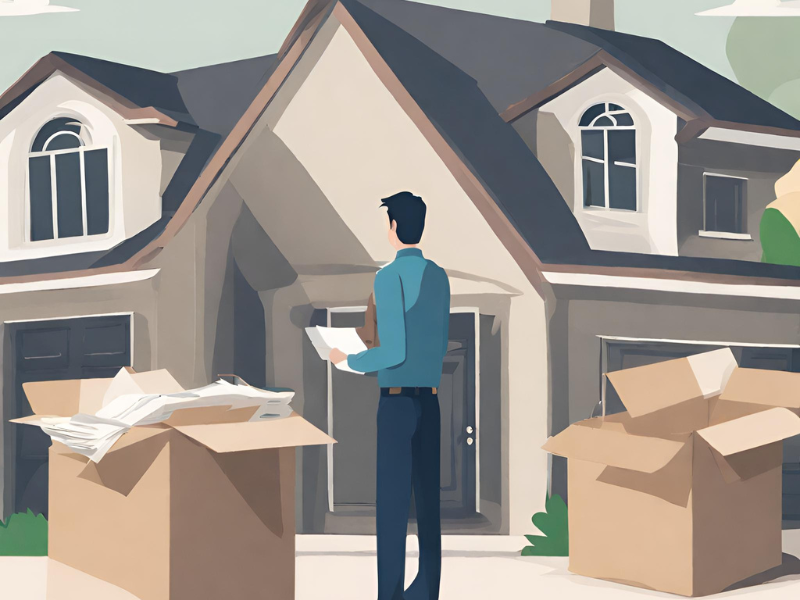
Mortgage Dove
How Long Does a Home Closing Take?
Closing on a house is a significant milestone, but the duration of the process can vary. The closing period involves several stages, from application to funding. To speed up the process, meticulous organization and clear communication are essential. Understanding the steps involved and potential delays can help you navigate the closing process more smoothly. Ultimately, preparation is critical to a successful and stress-free closing day. Now, let's delve into how long the closing process takes, what happens on the closing day, what factors might cause delays, and some tips for a swift closing. Closing on a house generally takes 30 to 45 days, with the average home purchase closing time recorded at 50 days in September 2021. The duration can vary based on the loan type and the housing market conditions. Achieving a 30-day closing is possible with smooth financial readiness from the buyer and no issues found during the home appraisal and inspection. On average, standard mortgage loans closed in about 49 days, while Federal Housing Administration (FHA) loans took the longest at 52 days. Clear communication and organized efforts among the buyer, seller, and lender are crucial to speeding up the process, potentially saving both parties money and reducing unnecessary stress. Closing day involves a meeting with various parties, including sellers, lenders, and real estate attorneys, to complete paperwork and settle closing costs. This process entails reviewing documents, initialing, writing checks, and signing on the dotted line. On average, if everything goes smoothly, anticipate spending at least two hours on this crucial day. During the closing day, you'll need to complete these tasks: Sign Documents On closing day, you'll encounter a stack of crucial documents requiring your signature. Many of these are legally binding, so carefully reading through them is vital to ensure accuracy and a complete understanding of the terms. These documents include: Pay Closing Costs When closing on a home, you'll encounter closing costs – fees owed to your lender for processing your mortgage. These costs vary, but your Closing Disclosure will likely include: Transfer the Home Title At the end of closing, the home title is transferred to your name, officially making you the new homeowner. A house title encompasses all the legal rights regarding ownership and use of a residential property. Remember that these rights may be subject to various laws, easements, liens, or homeowners association (HOA) rules. Closing a house involves several stages, usually over business days and excluding weekends. Here's a concise breakdown: After the seller accepts your offer, a few factors might slow the home closing process. A common issue is the home appraisal, where the property's value is assessed to ensure it's enough to secure the mortgage. If the appraisal falls short of the loan amount, the buyer may need to pay extra. Another potential delay is if the lender discovers issues with the buyer's finances, leading to a possible denial of the mortgage application. It could jeopardize the deal, and finding a new lender will extend the timeline. Title issues, such as a lien on the home, might be less familiar but require resolution before ownership can transfer. Additionally, problems identified during home inspections, especially major ones, may prompt the buyer to request repairs or even reconsider the purchase, causing further delays. For a speedy homebuying experience, consider these tips: When closing on a home, the usual timeline is about 30 to 45 days. Yet, a savvy homeowner aims for efficiency, trying to wrap things up quickly. Although some delays are inevitable, there are proactive steps you can take for a smoother closing experience. Boost the speed of the process by reducing debts promptly, responding swiftly to the lender's questions, preparing all necessary documents carefully, and ensuring your down payment is deposited on time. By being proactive in these areas, you play a big part in making your home closing journey smoother and faster.How Long Does It Take?
How Long Does the Closing Day Itself Take?
The House Closing Process
What Might Cause Delays?
Tips for a Swift Home Closing
The Bottom Line: It Pays Off to Prepare for Closing Day
"Mortgage Dove makes home financing convenient for every American. You can count on us to provide a home buying experience tailored to your personal needs and financial situation. We strive to give you the peace of mind that your home financing goals can be achieved.”

Mortgage®
www.mortgagedove.com



-and-how-does-it-work.png)